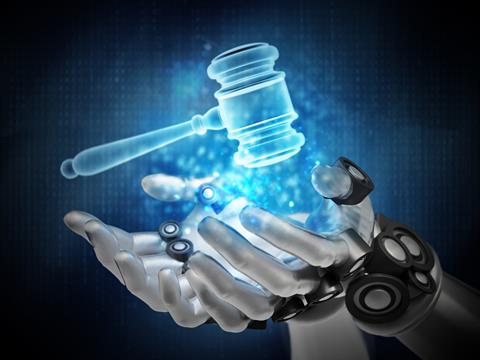Global Antitrust Enforcers Finally Crack Down on Big Tech’s Dominance of AI Space

Sander McComiskey
Modern antitrust laws have always empowered federal enforcers to scrutinize any aspect of how companies compete — or don’t compete — with each other. In recent years, however, enforcers have focused almost entirely on formal merger proposals, only rarely examining partnerships, licensing deals, minority investments, and similar arrangements. But a promising set of Federal Trade Commission and Department of Justice investigations into the market for artificial intelligence may signal the restoration of some of competition policy’s most powerful tools.
Until recently, tech giants snapping up AI startups seemed to have successfully gamed the typical merger review process. Take, for example, Microsoft’s absorption of Inflection in March. If Microsoft had simply acquired the flagging startup, the move would have raised enforcers’ eyebrows on both sides of the Atlantic. Instead, the firm hired away Inflection’s CEO and most of its staff and paid $650 million to license its technology. The result was, by almost any standard, a de facto acquisition. But until news broke in June that the Department of Justice was investigating the deal as an “informal acquisition,” it looked like Microsoft had dodged review entirely.
Microsoft/Inflection is one in a sequence of investments, partnerships, and quasi-acquisitions in AI that antitrust officials have started to pay attention to. The FTC and DOJ recently launched an array of inquiries and formal investigations on the topic. Enforcers in the UK and EU have joined in, investigating high-profile partnerships and contemplating antitrust cases against the major players.
In its initial inquiry in January, the FTC wielded its broad investigatory powers to request information from Amazon, Google, and Microsoft on their large investments in AI startups. The agency requested the firms turn over all documents pertaining to “the practical implications” of the partnerships on business decisions, the effect on “competition for AI inputs and resources,” and potential impacts on competitors. Underlying the inquiry was concern that Big Tech’s control over AI startups could reduce head-to-head competition, dampen incentives to innovate, and further entrench dominant players in adjacent markets like cloud computing.
Click here to read the full article at The Corner.
[…] Global Antitrust Enforcers Finally Crack Down on Big Tech’s Dominance of AI Space […]